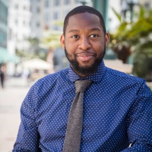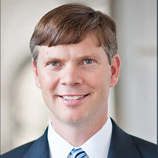Community Engagement Racial and Ethnic Disparities July 9, 2020
The Coronavirus pulled back the curtain on racial disparities in Buncombe County’s jails.
We have been meeting, countywide, and working intentionally on these issues since November 2018.
Likewise, if America has learned anything from the death of George Floyd, it’s that systemic racism exists. If people are willing to address the question of how they contribute to it, then we’ll be able to meaningfully make progress all over the country.
I chair the 26-person-strong Buncombe County Criminal Justice Equity Workgroup in North Carolina. It has diverse membership from our pretrial, court, and government systems, as well as from the local community.
Our goals are to normalize and prioritize racial equity, giving a shared analysis and definitions; to operationalize those efforts by providing tools and data to develop strategies and drive results; and to organize internal infrastructure and partnerships to make it happen.
The data show a baseline disproportionality in racial representations within our jails: Black people represent 6.3% of Buncombe County’s population but make up approximately 25% of our pretrial jail population. During Coronavirus, owing to COVID-prompted reduction in the jail population, the pre-trial population that is Black has been hovering between 29%-31%.
Even as we have reduced our jail population more broadly as part of our prolonged work with the Safety and Justice Challenge, we have struggled to make progress on the racial disparities in our jail population. The Racial Equity Workgroup was founded to work specifically on reducing those racial disparities and determine methods and policy changes that can achieve that goal.
Workgroup members view the group as a place where they can deal with uncomfortable issues and speak without judgment. By showing up in the first place, there’s a commitment to racial equity. We start from there. Broad representation from around the community means we’re able to take a community-wide approach.
As we work on the justice system, we have to look more deeply into our society as a whole while keeping the big picture in mind.
Our Community Engagement Workgroup, for example, surveyed residents of public housing as part of its community outreach, and found that their priority concerns were: systemic poverty, a lack of jobs and resources, outsiders bringing in and using drugs, peer pressure, a lack of understanding of the justice system, the school to prison pipeline, as well as police attitudes towards their community.
Data also helps us to get beyond surface level conversations and has built momentum in our jurisdiction to achieve our goals. Having the data available without pointing to a specific person who’s responsible has helped us to delve into some tough but necessary conversations.
Luckily, our group has met for long enough now that we can have conversations respectfully on these issues and bring the conversation back to the data each time.
Right now, one of the things that we’re looking into is the disparity in the length of stay for violent crimes. We are trying to understand when we compare Black people and white people with similar charges and backgrounds, why is the length of stay longer for Black people? We raise the question: if people of color are often charged earlier in life and more aggressively, is that leading to longer sentences or longer periods in custody because they may have a longer record? Conducting case reviews, this has not always been the case. So we ask ourselves, why? We are trying to find the root causes so that we can ultimately tell our court system and local law enforcement agencies: “This is the policy change we need to make for racial equity in our community.”
We’re looking at the court system as whole, asking things like are we having bond hearings as frequently for Black clients as we are for white clients. As a public defender, I’m asking myself “Am I negotiating as hard as I would for my Black client as I would for my white client? Am I raising these issues in my discussion with court actors?”
We’re all doing that work. It can be mentally exhausting for people of color to lead, particularly on top of our full-time jobs. But the working group all show up with an incentive to change things. And we know we have the power to strengthen our community.
—Yolanda Fair is a public defender and chair of the Buncombe County Criminal Justice Equity Workgroup.


